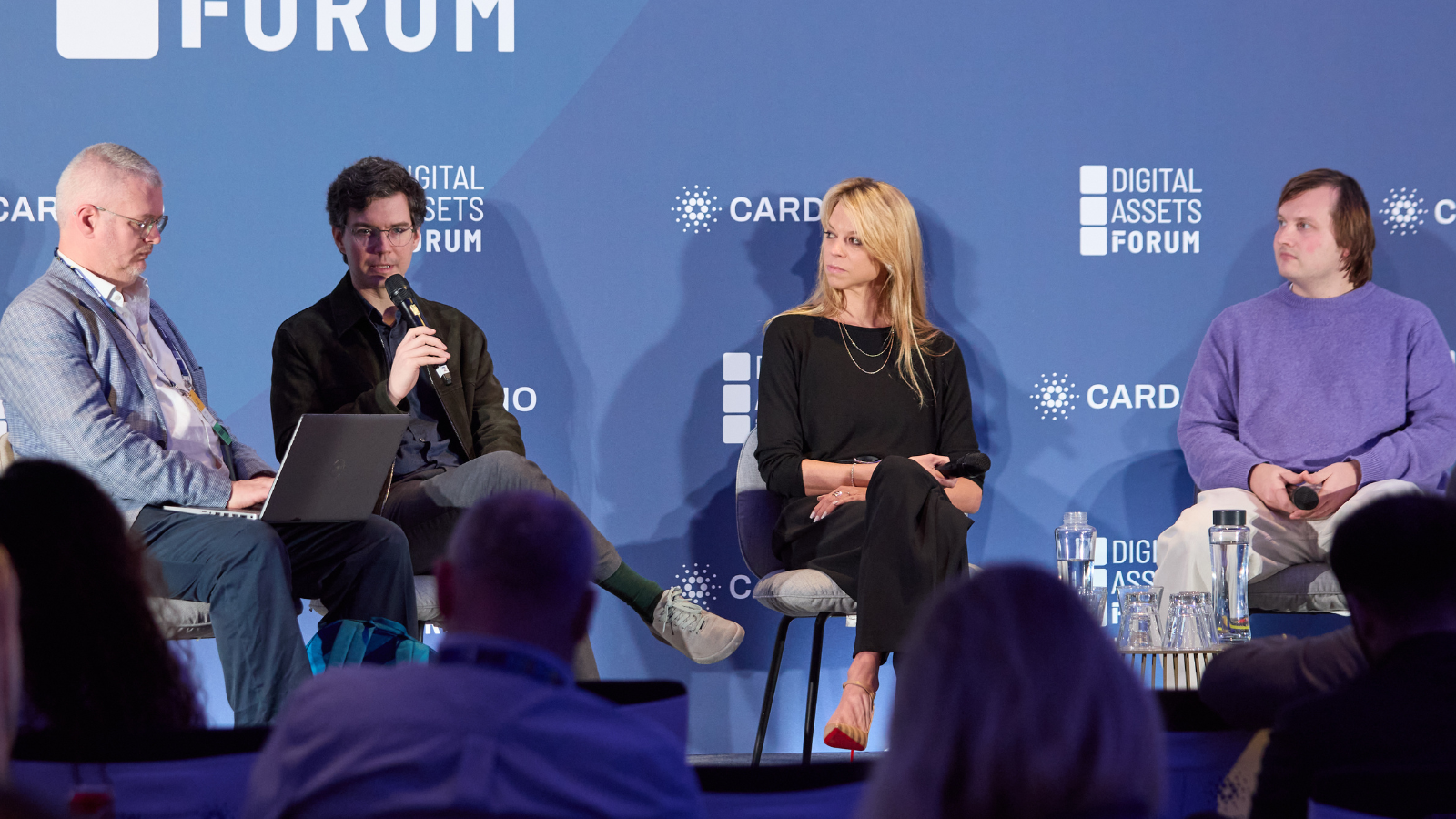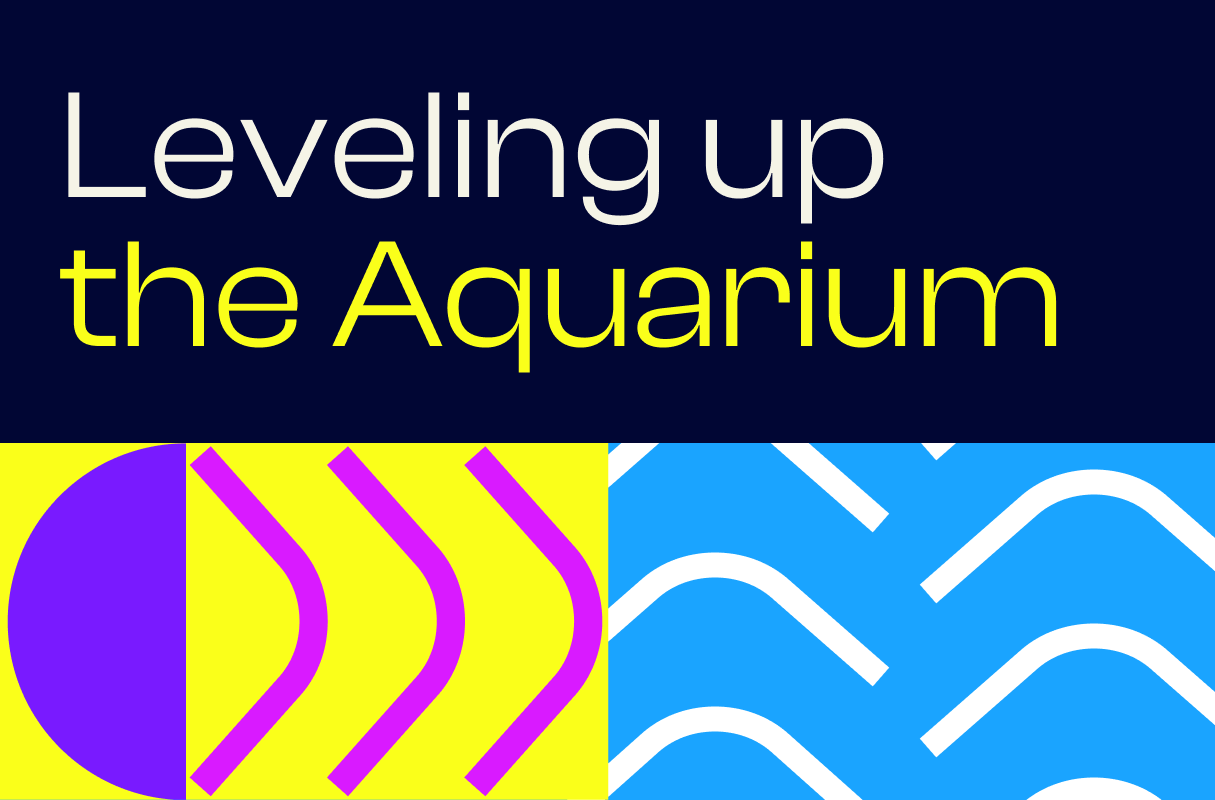
Just a few months into its inception, XRPL Commons launched the Aquarium Residency, a unique program supporting creators passionate about developing impactful projects using blockchain technology. How? David Bchiri sums it up: "We designed the program we wished we had when starting out as an entrepreneur."
Unlike your typical startup incubator, The Aquarium draws inspiration from the key elements of an art residency, offering participants the time and space necessary to fully immerse themselves in their projects. Attracting a diverse range of talents, from developers to visionaries, the residency spans 12 weeks and serves as a platform to address critical issues and push the boundaries of decentralized applications powered by the XRP Ledger.
With decentralization and transparency at its core, we are convinced that blockchain technology can be used to enable regenerative business. Sustainability is a vital pillar for the XRP Ledger blockchain overall, and its unique consensus algorithm makes it very energy efficient. For this reason, for this inaugural residency, we decided to champion projects centered around regeneration.
"The Aquarium is a resident-centered program that provides freedom and frames. It allows both exploration and focus to solve real-world problems. Each cohort gathers a collective of individuals combining skills, competencies, and determined intention, and this combination of talents allows us to accelerate every single project dramatically." Aurélien Burget (Aquarium Director)
To design a program fitting our ambition, we partnered with Standard Deviation to give our residents the knowledge and tools they need to build their regeneration-centric mindset. Mawuena Tendar and Lara Pagnier are leading advocates and coaches who have been helping both Fortune 500 companies as well as startups to accelerate a regenerative economy.
Our first residency hosted 11 creators from Colombia, Chile, the United States, China, Germany, and France. The diversity of their background is a reflection of the XRPL ecosystem. Amongst those who joined: a former US Coast Guard helicopter rescue swimmer turned full-stack developer, an entrepreneur with decades of experience in finance, an artist working for over twenty years in sustainability, a chief product officer, and a recent graduate. Some residents were already working on a product, while others were interested in the technology and keen on exploring ideas. Besides diversity, complementarity was also a critical driver in our selection process to foster a truly collaborative community atmosphere throughout the program. On October 1st, we welcomed Jeanne, Kelly, Matt, Sébastien, Eric, Henry, Joshua, William, Simon, Sébastien, Andres, and Alex in XRPL Commons' headquarters nestled in central Paris. Those from abroad for the program were hosted at Prospero, a co-living space in the hip neighborhood of Ménilmontant known for its buzzing nightlife and multicultural flavor.
The 12-week program began with an immersive week to embrace a regenerative mindset before learning entrepreneurial methodologies. We focused on why and how to build optimistic, impactful businesses for the kick-off day. The Standard Deviation team gave us a better understanding of the climate crisis, the necessity for action, and the opportunities ahead in this paradigm shift. Going through the 2 Tonnes workshop was pivotal for our residents, transforming their perception from guilt to responsibility and empowering them to initiate meaningful change. To meet the Paris Agreement's goal of limiting global temperature rise to under 2°C by the end of the century, everyone must cap their annual greenhouse emissions at 2 tonnes of CO2 equivalent. This workshop gave us the levers for effective action, from shifting our diet to decarbonizing our mobility. Beyond the individual level, it helped our residents systematically redefine their projects.
The next day, we traveled to an agricultural campus outside of Paris called HECTAR.
Spanning over 600 hectares, this unique project was established by the French tech entrepreneur Xavier Niel, who is also behind Station F and Ecole 42.
HECTAR is dedicated to supporting and accelerating agriculture startups, fostering innovation, and piloting regenerative farming practices. There, we saw first-hand the results of regenerative practices in growing vegetables. HECTAR promotes a holistic approach to enriching soil quality, significantly improving product quality and yield. This philosophy became our north star throughout the remainder of the residency.
"I didn't know what to expect with this program besides a deep dive into XRPL tech. The regenerative focus really pulled me out of the code and into global systemic awareness." Joshua Maggie (Full-stack developer & project contributor)

Once we shared this purpose for the residency, it was time to learn the framework to help our builders develop their projects. Most of the cohort didn't come from the startup world, so we organized a 3-day intensive sprint. The objective was to grasp agile principles before their practical application in their projects. This involved delivering an initial public pitch, following the steps outlined in the Lean Canvas model. Guided by mentors, they re-framed the problem they aimed to solve, challenged their unique value proposition, and found critical metrics for them to follow. Some residents pivoted on their original idea, while others supported other fellow residents' projects rather than launching new ones. For Sébastien, Ekomia's founder, this sprint is "the most transformative moment during which I shifted my focus in the right direction."
Learning the right tools from the get-go allowed our residents to define rituals to maximize efficiency and foster team collaboration. The Aquarium is structured around weekly events inspired by scrum ceremonies. Monday mornings start with a 30-minute weekly kick-off in which each resident shares a commitment ("what I will achieve this week") and an ask ("what I need from the community to help achieve my goals"). On Wednesday morning, we share a team breakfast during which a resident can pitch his project, demo his product, or share a deck to gather feedback from his peers. Finally, Thursday afternoons are time for an hour-long weekly review to discuss the work done and highlight achievements and the wins of the week.

On top of these rituals, we had a specific area of focus each week to drive our residents' progress. One of the initial trainings, led by our technical director Luc Bocahut, was on developing on the XRP Ledger: understanding the technology, the core functionalities, the basics of coding, and navigating the larger ecosystem. Another technical aspect of web3 that we delved into during workshops and coaching sessions is tokenomics. Our partner expert, Thomas Cadorel, helped our residents grasp the complexity behind deploying economics on tokenized environments first by assisting them to understand if and why your project needs a token. Then, it was about mapping out the whole economic system needed: governance, emission, value, etc. We focused our other workshops on gamification with Alexandre Duarte (Fidback), navigating the legal and regulatory aspects of web3 with D&A partners, or the art of public speaking with Brightness.
"I used to put forward crypto in all my pitches, but I realized that users don't really care about the technology in our solution; they just want to solve their problem. People don't care about their mortgage but about living in their home." Matt Mankins (Kudos)

The Aquarium is not just about accelerating projects but also about connecting with the wider XRPL Community. Throughout the program, the residents had the opportunity to meet founders such as Florian Bouron (GemWallet), Viacheslav Bakshaev (Bithomp), and Farhaan Dawood (Frii). They heard from experts on growth hacking like Camille Mathis (Conquistadors.io) or on Blockchain for Good with Jacques-André Fines-Schlumberger. These expert insights were impactful for Matt, who felt it was like "a mini-MBA" to hear stories from builders worldwide. Our residents were also welcome to organize events on top of those hosted by the XRPL Commons Teams. Jeanne (Sparkling Debt) set up a "DAO's decision-making tools and processes' and Kelly a "Women in Web3" event.

Finally, this residence was also an opportunity for our residents to get out of their comfort zone during experiences organized with Standard Deviation. The team got to learn improvisational theater and met inspirational personalities. One of them was Patrick Bernard, founder of the République des Hyper Voisins ("Republic of Super Neighbors"). This grassroots movement strives to recreate the camaraderie of a small village within a neighborhood of 15,000 residents in Paris. This social experiment evolved into a dynamic community of thousands of neighbors organizing dinners, children's activities, gatherings, and caring for each other. A powerful example of social regeneration in a dense urban context!
After 12 weeks of hard work and countless pivots, it was time for our residents to showcase their projects to the XRPL ecosystem. Investors, founders, partners, and friends gathered for the first Aquarium Demo Day on December 19th to see our residents pitch their work. The objectives were to create connections, whether to raise funds, hire a team, find corporate partners, or simply demonstrate blockchain capabilities. Simon (Ekonavi) says: "It was a mountain to climb, but we all made it. It was a celebration of a group effort towards an eclectic set of wonderful projects, and the validation from those present made it all the more fulfilling." His next step? Applying for an XRPL Grant or joining the XRPL Accelerator, a move Andres (Cityzeen), Eric (Cara7), William (Fillgood), and Sébastien (Ekomia) also intend to make to push their ideas to market.
We are gearing up to host our upcoming residency, Cohort 2, centered on Intellectual Property. Following that, Cohort 3 will focus on Decentralized Identity and is set to start in April. Feel free to reach out if you're interested in connecting or applying!














